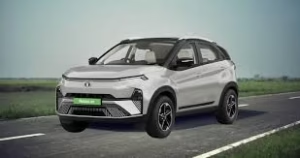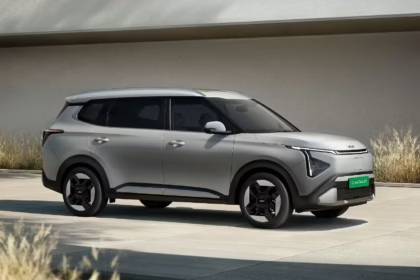Introduction
India’s Electric car space is booming like never before. In 2025, rising fuel prices, government subsidies, and growing concerns about climate change have transformed Electric cars (EVs) into a luxury and a smart, forward-looking option for regular consumers. Whether city dwellers or SUV enthusiasts, Indian buyers are eagerly seeking EVs that offer an ideal combination of affordability, range, design, and performance. Yet with dozens of models in the market, choosing the correct electric car is easier said than done.
- Top Electric Cars in India
- Amazing Benefit: Save Big on Running & Maintenance Costs
- Hidden Downside: Charging Infrastructure Still Limited
- Amazing Benefit: Central + State Government Subsidies
- After-Subsidy Prices of Top EVs by State (Estimated)
- 7.7L
- How much subsidy can I get on the Tata Punch EV in Maharashtra?
- The Tata Punch EV in Maharashtra?
- Buyer’s Guide: Which EV Is Best for You?

This piece demystifies the topic by offering a detailed comparison of the six top Electric cars in India for 2025. We will delve into their actual prices, range, charging standard, after-sales support, and even inform you if government FAME-II incentives are relevant. You will have more clarity on what fits your budget, what is sensible for a daily commute, and which EV offers you the best value in the long run.
What You’ll Discover in This Guide:
- Real-world on-road prices (after subsidies and taxes)
- Battery range & charging time – what’s possible in actual Indian conditions
- Maintenance costs – long-term ownership insights
- Best use-case fit – city commute vs. highway vs. family use
- Charging infrastructure readiness – for each EV brand
- Government subsidies & state-level EV benefits
- Pros and cons of each model – simplified for decision-making
Top 6 Electric Cars in India for 2025:
Tata Punch EV (2025)
An affordable, compact electric SUV ideal for city drivers and first-time EV buyers.
- Price: Rs 10.99 lakh (ex-showroom, pre-subsidy)
- Range: 315 km (MIDC)
- Battery: 25 kWh and 35 kWh options
- Charging: Fast charging supported (0–80% in ~56 minutes)
- Features: 10.25″ touchscreen, digital cluster, sunroof (top variant), arcade.EV app store
- Ideal For: Urban commuters, college students, budget buyers
MG Comet EV (2025)
India’s smallest and cheapest EV—perfect for narrow city roads and short daily commutes.
- Price: Rs 7.98 lakh (ex-showroom)
- Range: 230 km (ARAI)
- Battery: 17.3 kWh
- Charging: 3.3 kW charger included (no DC fast charging)
- Features: Dual 10.25″ screens, voice control, i-SMART infotainment
- Ideal For: Metro city drivers, solo riders, short-range commuters
Hyundai Creta EV (Expected 2025)
An all-electric version of India’s most popular SUV, offering Hyundai’s trusted platform and features.
- Expected Price: Rs 15.5–17 lakh (ex-showroom)
- Range: 450+ km (estimated)
- Battery: ~45–50 kWh (official specs awaited)
- Charging: Fast charging support with Hyundai’s network
- Features: Based on the 2024 facelift Creta – ADAS, ventilated seats, panoramic sunroof, connected tech
- Ideal For: Families, daily highway/city commuters, Hyundai brand loyalists
Mahindra XUV.e8 (2025)
Bold, tech-oriented, and premium electric SUV based on the INGLO platform.
- Expected Price: Rs 21–23 lakh (ex-showroom)
- Range: 500+ km (real-world range expected ~470 km)
- Battery: 60–80 kWh (LFP chemistry)
- Charging: Ultra-fast charging (350V architecture)
- Features: Dual-screen layout, Level 2 ADAS, flat floor design, futuristic interior
- Ideal For: Long-distance drivers, highway touring, premium SUV buyers
BYD Atto 3 (2025)
A world-renowned electric SUV that marries design, range, and leading-edge battery technology.
- Price: Rs 24.99 lakh (ex-showroom)
- Range: 521 km (ARAI certified)
- Battery: 60.48 kWh BYD Blade Battery (LFP)
- Charging: 0–80% in 50 minutes (DC fast charger)
- Features: Rotating 12.8″ touchscreen, 360° camera, NFC key card, seven airbags
- Ideal For: EV enthusiasts, tech enthusiasts, premium urban families
Tata Nexon EV (2025 Facelift)
India’s best-selling EV is now more efficient, smarter, and sharper.
- Price: Rs14.49–19.29 lakh (ex-showroom)
- Range: 465 km (LR variant), 325 km (MR variant)
- Battery: 30 kWh (MR) / 40.5 kWh (LR)
- Charging: 0–80% in ~56 minutes (DC fast charging)
- Features: Arcade.EV, JBL sound system, leatherette seats, voice commands, connected car tech
- Ideal for: Family car buyers, mid-range budget users, and Tata loyalists.
Top Electric Cars in India
| Model | Ex-Showroom Price (Rs ) | Range (km) | Fast Charging | Launch Year |
| Tata Punch EV | Rs 10.99 Lakh | 315 km | Yes | 2025 |
| MG Comet EV | Rs 7.98 Lakh | 230 km | No | 2025 |
| Hyundai Creta EV | Rs 15.5–17 Lakh (Est.) | 450+ km | Yes | 2025 |
| Mahindra XUV.e8 | Rs 21–23 Lakh (Est.) | 500+ km | Yes | Late 2025 |
| BYD Atto 3 | Rs 24.99 Lakh | 521 km | Yes | 2025 |
| Tata Nexon EV | Rs 14.49–19.29 Lakh | 465 km | Yes | 2025 |
Amazing Benefit: Save Big on Running & Maintenance Costs
By 2025, Electric cars in India are expected to offer significant cost savings on both day-to-day running and maintenance costs over time. In a nation where fuel prices often exceed Rs 100 per liter, EVs bring a sigh of relief from financial burdens for value-conscious Indian families and working professionals alike.
Let’s get down to the basics:
A conventional petrol car costs between Rs 6 and Rs 7 per kilometer, depending on the mileage and city traffic.
EVs use up approximately Rs 1 to Rs 1.5 per kilometer in electricity charges — that’s almost an 80% less running cost.
- Yearly Savings:
For a typical Indian covering a distance of 12,000–15,000 km annually, this translates to an annual cost savings of Rs 60,000 to Rs 1 lakh. In 5 years, that is Rs 3–5 lakh saved, which can be used to service your loan EMIs or towards a family vacation, investment, or home renovations.
- Maintenance Benefits:
EVs are less mechanically complex. They don’t require oil changes, have fewer moving parts, no clutch, and no transmission system, resulting in fewer breakdowns, less maintenance, and longer maintenance intervals. That’s not only money saved, but also time and stress saved.
EVs in India in 2025 can cost as much as 80% less per kilometer than a petrol vehicle.
Hidden Downside: Charging Infrastructure Still Limited
EVs are immensely popular in urban areas such as Delhi, Mumbai, and Bangalore, and charging infrastructure is growing rapidly, with hundreds of slow-charging and fast-charging points promoted by government-run and private operators. For instance:
- There are more than 2,000 public chargers in the Delhi-NCR region, several of which are embedded with apps such as Tata Power EZ, Statiq, and Ather Grid.
- In Mumbai, fast chargers are available at shopping malls, parking stations, and even residential complexes.
- There is strong EV adoption in Bangalore, with several charging corridors on highways such as the Bengaluru–Mysuru Expressway.
Can I charge my EV at home?
Yes, and it’s the most convenient option for most EV buyers, particularly outside of metro areas.
If you own a smaller city home or an independent residence, try these options:
- Install a home charging unit (3.3 kW–7.2 kW AC) from your existing power source. Most EV makers, such as Tata, MG, and Hyundai, provide home installation kits at the time of purchase.
- For societies or apartments, request your RWA or housing association to permit a common EV charging point.
- Choose EVs that have portable charging kits — these are particularly handy for emergencies or when visiting places with no charging stations.
EV ownership is viable in Tier 2 and 3 cities — if you invest in your charging infrastructure intelligently. Home charging remains the safest, most affordable, and most dependable mode of charging in 2025.
Amazing Benefit: Central + State Government Subsidies
The largest financial Electric cars is more accessible than ever. Indian customers, these subsidies tend to lower the effective price by Rs 1–2.5 lakh, depending on the vehicle and region.
FAME II Scheme – Central Government Support
In the FAME II (Faster Adoption and Manufacturing of Electric Cars) scheme:
- Incentives of up to Rs 1.5 lakh are available based on the size of the battery and type of vehicle.
- Typically amounts to Rs 10,000 per kWh of battery capacity.
- Directly applied by the manufacturer, you initially pay a lower ex-showroom price.
State-Level EV Incentives
Here’s what leading Indian states are offering in 2025:
Delhi:
- Rs 10,000 per kWh battery incentive (maximum Rs 1.5 lakh)
- No road tax, no registration fee
- Priority EV lanes and special parking areas
Maharashtra:
- Rs 5,000 per kWh subsidy (up to Rs 1.25 lakh)
- 100% exemption from road tax
- Scrappage bonus is additional if trading in an old ICE vehicle
Karnataka:
- Exemption of 100% road tax
- Property tax rebate for EV buyers (in some urban areas)
- Charging infrastructure incentives for apartment societies
Tamil Nadu:
- Interest subsidy on EV loans
- Waiver of road tax and registration fees
- Special manufacturing hub incentives for fleet purchases and ride-share EVs
After-Subsidy Prices of Top EVs by State (Estimated)
| Model | Delhi Price (Rs) | Maharashtra Price (Rs) | Karnataka/TN Price (Rs) |
| Tata Punch EV | Rs 9.49 Lakh approx. | Rs 9.75 Lakh approx. | Rs 10.2 Lakh (no road tax) |
| MG Comet EV | Rs 7.2 Lakh approx. | Rs 7.45 Lakh approx. | Rs 7.65 Lakh approx. |
| Nexon EV MR | Rs 13.25 Lakh approx. | Rs 13.6 Lakh approx. | Rs 14.1 Lakh approx. |
| Creta EV (est.) | Rs 14.7–15.5 Lakh est. | Rs 15.2–16 Lakh est. | Rs 16+ Lakh est. |
City-Specific Pricing with Subsidies
| Model | Delhi (Rs ) | Mumbai (Rs ) | Bangalore (Rs ) | Chennai (Rs ) |
| Punch EV | 9.49L | 9.75L | 10.2L | 10.1L |
| Nexon EV | 13.25L | 13.6L | 14.1L | 14.2L |
| Comet EV | 7.2L | 7.45L | 7.65L | 7.7L |
How much subsidy can I get on the Tata Punch EV in Maharashtra?
- Central FAME II Subsidy
- You’re eligible for Rs 10,000 per kWh of battery capacity.
- With the Tata Punch EV’s 25 kWh battery, that’s Rs 2.5 lakh — but it’s capped at a maximum of Rs 1.5 lakh.
(Final incentive under FAME II: Rs 1.5 lakh)
- Maharashtra State EV Subsidy
- The state policy offers a 10% discount on the ex-showroom price of passenger EVs, including the Tata Punch EV.
- With the Punch’s introductory ex-showroom price of approximately Rs 9.99 lakh, this works out to around Rs 1 lakh off.
- Maharashtra offers full road tax and registration concessions, along with highway toll exemptions on routes such as the Mumbai–Pune route, for EVs.
Total Subsidy Snapshot for Tata Punch EV in Maharashtra
- Central Govt (FAME II): Rs 1.5 lakh
- State Govt (10% discount): ~Rs1 lakh
- Additional Benefits: Road tax, registration fee, and toll concessions
Effective Subsidy: Around Rs 2.5 lakh reduction from the sticker price, and constant non-cash incentives such as exempted road tax and tolls, placing Maharashtra among India’s most EV-friendly states.
The Tata Punch EV in Maharashtra?
In Maharashtra, you’ll get Rs1.5 lakh off under the central FAME II subsidy plus roughly Rs1 lakh from the state’s 10% EV discount—around Rs2.5 lakh total savings, along with waived road tax, registration fees, and highway toll exemptions.
The most prevalent myth among first-time EV buyers in India is that the ex-showroom price is the end amount that they’ll pay. Reality, however, is that the on-road price — the sum you pay before taking the car out of the showroom — may be much higher owing to a plethora of unknown expenses usually neglected while publicising cars.
Common Hidden Costs in EV Pricing (2025)
- Road tax is waived in some states, such as Delhi, Maharashtra, and Karnataka; registration charges may still be applicable in other states within the same vehicle segment.
- EV insurance is slightly more expensive than that of ICE cars. You must pay between Rs 12,000 and Rs 25,000 per year, depending on the model and the Insured Declared Value (IDV).
- Home charger installation: Although most EVs come with this feature, a few models charge individually — prices can be as high as Rs 25,000.
- Upgrades like infotainment systems, mats, fast chargers, or alloy wheels can cost between Rs 10,000 and Rs 40,000, depending on the variant and brand.
Tata Punch EV Creative Variant
- Ex-Showroom Price: Rs 10.99 Lakh
- Insurance (1st year): Rs 19,000
- RTO/Registration (State-dependent): Rs 10,000
- Charger installation: Free by Tata
- Final On-Road Price: ~Rs 11.3 to Rs 11.6 Lakh (city-dependent)
Q: Is the EV price in India inclusive of the charger and registration?
A: EV manufacturers include the charger and minimal registration in the ex-showroom price, while some others make them optional add-ons. Always double-check with your dealer to prevent unexpected shocks.
When comparing EV prices, ask for the full on-road quote — including insurance, extended warranty, accessories, and installation charges — to get a realistic sense of what you’re paying.
Buyer’s Guide: Which EV Is Best for You?
With the numerous electric cars expected to be launched in India in 2025, it all comes down to how, where, and how much you drive.
City Commuters (Short-Distance, Urban Driving)
If you primarily commute in heavy urban areas with shorter daily drives (less than 50 km/day), nifty and efficient EVs are perfect for you:
- Tata Comet EV – Tiny size, extremely affordable, ideal for tight parking spaces.
- Tata Punch EV – Urban SUV feel with amazing features and a reasonable range for short city drives.
What are the best Electric Cars for city driving in India in 2025?
The Tata Punch EV and MG Comet EV are top choices for daily city commuting — they are affordable, compact, and have low running costs.
Family SUV Buyers (Comfort, Safety, and Daily Utility). Need space, comfort, and a solid feature list for family use?
- Tata Nexon EV – Great all-rounder with strong range, features, and proven reliability.
- Hyundai Creta EV – A premium, feature-rich SUV with Hyundai’s trusted service and safety.
Long-Range Travellers & Highway Users
If you frequently use highways or go on inter-city journeys, battery range and rapid charging are most important:
- BYD Atto 3 – More than 500 km range with cutting-edge interior and rapid charging.
- Mahindra XUV.e8 – Grand electric SUV built for highway cruises with state-of-the-art drive systems (launching late 2025).
Should You Buy an EV in 2025?
Pros:
- Massive fuel cost savings (up to 80% less per km compared to petrol/diesel)
- Attractive government incentives (up to Rs 1.5 lakh + tax concessions)
- Future-proof, sustainable investment with appreciating resale value
Cons:
- Charging infrastructure is still evolving in small towns
- The upfront price of EVs is more than that of ICE vehicles in specific segments
- Battery replacement fear in a 7–8 year ownership cycle (though getting better quickly)
Is it a good time to purchase an Electric car in India in 2025?
Yes, it’s a good time to purchase an EV — fuel savings and government subsidies make them more economical than ever, particularly in urban areas. Ensure the charging privileges are suitable for your location.
Key Takeaways
- EVs are now cheaper than ever in India (2025), owing to central and state subsidies, and the buyers save as much as Rs 1.5–2.5 lakh.
- Companies such as Tata, Hyundai, and BYD are at the forefront, offering dependable, range-effective, and value-packed models for all classes of buyers, ranging from city commuters to intercity travellers.
- Public charging stations remain underdeveloped, particularly in Tier 2 and 3 cities, but domestic charging installations are now more straightforward, quicker, and more likely to be bundled with EV sales.
- The operating expenses of EVs are 70–80% lower compared to those of petrol cars, making them not only environmentally friendly but also economically more sensible for Indian consumers in 2025.
Pros vs Cons: EVs in India 2025
| Pros | Cons |
| Up to 80% cheaper to run | Public charging infra still patchy |
| Govt incentives save big. | The initial cost is still high for some. |
| Zero tailpipe emissions | Battery life anxiety after 7–8 yrs |
| Low maintenance | Limited model options in some tiers |
Conclusion
In India, an electric vehicle is not only a futuristic choice but also a wise financial choice, given the rising fuel prices and increasing environmental pressure. Even while public charging points remain short in Tier 2 and 3 cities, home charging products are filling the gap. Electric cars are a hard-to-find win-win for Indian buyers in 2025—frugal to operate, more environmentally friendly, and future-proofed for the world of mobility.
FAQs
Q: What are the cheapest Electric Cars in India in 2025?
A: MG Comet EV is the cheapest Electric car in India, costing Rs 7.98 lakh.
Q: Is the Tata Nexon EV better than the Ola S1 in 2025?
The Tata Nexon EV is an SUV, and the Ola S1 is an electric scooter designed for urban use. Therefore, they serve two different models that can not be compared.
Q: What is the cheapest electric car in India in 2025?
A: MG Comet EV is the cheapest electric car in India in 2025 at Rs 7.98 lakh (ex-showroom). It has a range of 230 km, is compact, and ideal for city driving.
Q: What is the highest range electric SUV available in India in 2025?
A: BYD Atto 3 has the highest certified range of electric SUVs available in India at 521 km with a full charge (ARAI).
Q: Is the price of an EV in India inclusive of a charger and registration?
A: Not really. Most include a basic home charger, but quick chargers, registration, and insurance are purchased separately.
Q: Is it possible to charge an EV at home?
A: Yes. A majority of EVs have home charging installations that are compatible, and manufacturers usually include installation with the purchase. There are also portable chargers for backup.
Q: Is 2025 a good time to purchase an Electric car in India?
A: Yes. EVs in 2025 provide substantial fuel savings, government incentives, and minimal maintenance expenses, making them a shrewd long-term investment, particularly in urban cities.
Q: How much of an on-road price difference vs. ex-showroom do EVs have?
A: On-road price encompasses insurance (Rs 12K–25K), registration (Rs 5K–20K), and accessories. EVs, such as the Tata Punch EV, can be Rs 30,000–Rs 60,000 pricier on-road than the quoted ex-showroom price.





